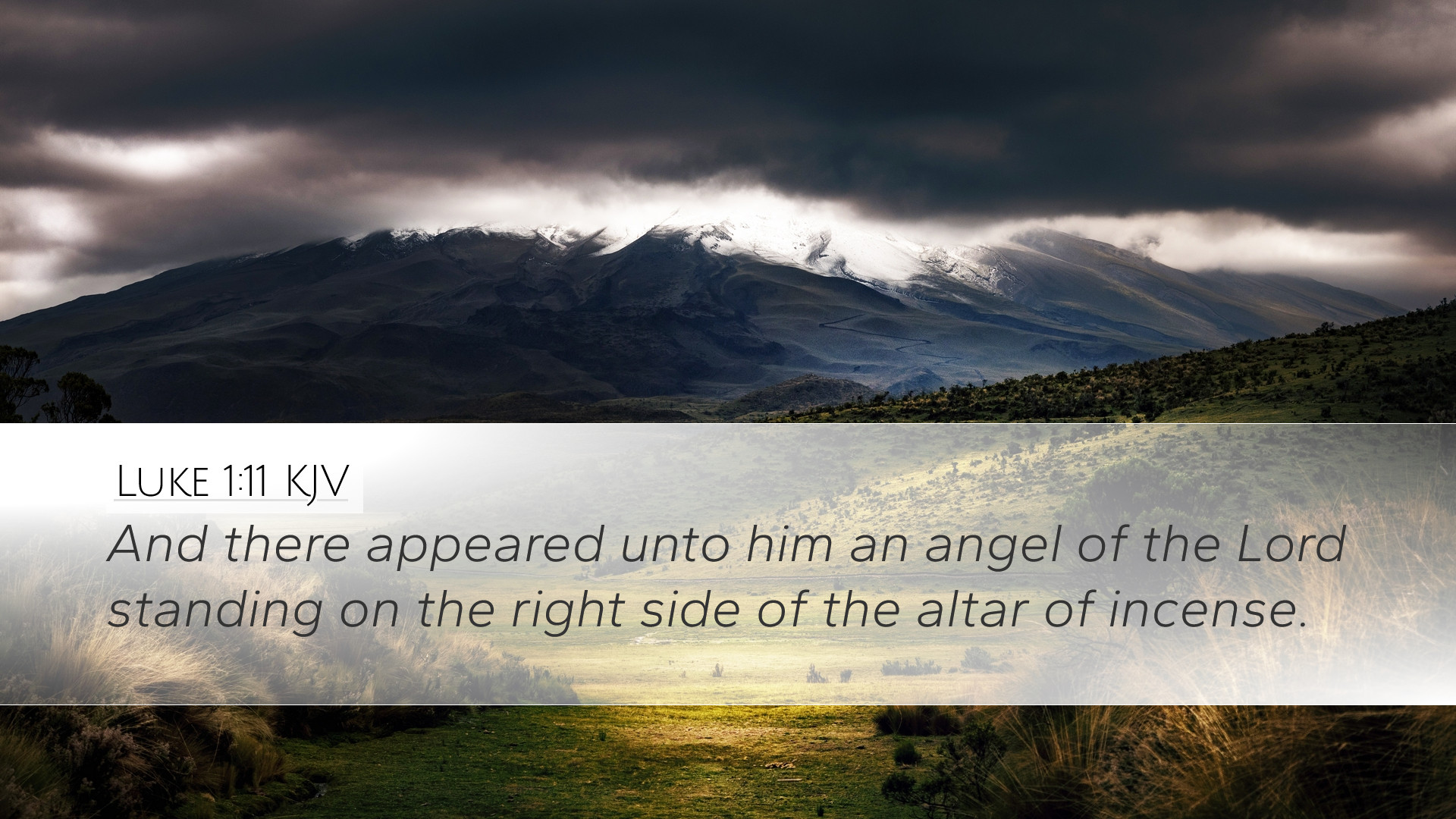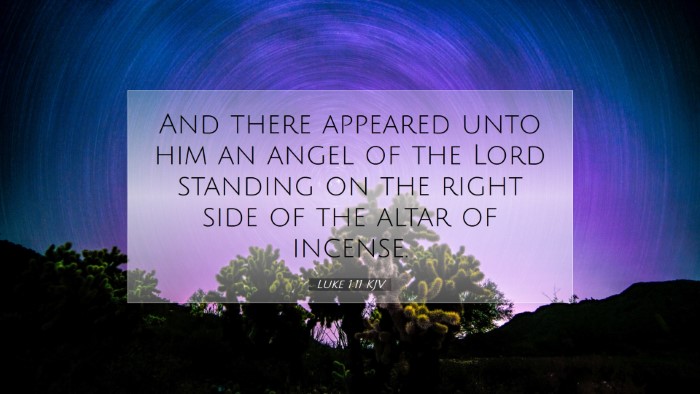Commentary on Luke 1:11
Verse: "And there appeared unto him an angel of the Lord standing on the right side of the altar of incense." - Luke 1:11
Introduction
This verse marks a pivotal moment in the Gospel of Luke, as it introduces divine intervention in the life of Zechariah, a priest, who is serving in the temple. The appearance of the angel signifies a profound message from God and sets the stage for the announcement of John the Baptist's birth, illustrating themes of faith, divine sovereignty, and the fulfillment of prophetic promises.
Contextual Analysis
This event takes place during the priestly duties of Zechariah. According to Albert Barnes, this was a time when the priestly work was significant, especially the burning of incense, which symbolizes prayer rising to God. The angel's appearance during this sacred duty emphasizes the seriousness of the message Zechariah is about to receive.
The Angel of the Lord
The term angel of the Lord is profoundly significant in biblical narratives. Matthew Henry highlights that angels are God's messengers, and their presence often accompanies major moments in God's redemptive plan. In this case, the angel stands on the right side of the altar, a position denoting favor and authority, suggesting that God is directly intervening in human affairs.
Symbolism of the Incense Altar
The altar of incense represents the prayers of the people ascending before God. Adam Clarke discusses the importance of this place in the temple, as it is here that Zechariah is confronted with an otherworldly presence. The correlation between prayer and the angelic message highlights that God is attentive to the prayers of His people.
- Connection to Prayer: The act of burning incense symbolizes the prayers of the faithful ascending to God, representing hope and expectation.
- Sign of Favor: The location of the angel’s appearance signifies God's favor towards Zechariah and the impending message.
Zechariah's Response
In the upcoming context, Zechariah’s initial fear upon seeing the angel is a common reaction in Scripture when mortals encounter divine beings. Matthew Henry notes that “the angel's presence was overwhelming,” and it typically invokes fear and awe. This is crucial, as it underscores the transformative nature of divine communication—God often first compels us to confront our fears before delivering His message.
Theological Implications
The appearance of the angel serves as a reminder of God's active participation in human history. Albert Barnes argues that this moment prophecies the coming of God's messenger, John the Baptist, who will prepare the way for Christ. This intertwining of themes—prayer, divine revelation, and prophetic fulfillment—is foundational for understanding the narrative arc of the Gospel.
- God's Sovereignty: God orchestrates events in the lives of His people according to His divine will.
- Prayer Life: The significance of steadfast prayer is emphasized—as Zechariah was engaged in prayer, God responded.
Application for Contemporary Believers
For pastors, students, and theologians, Luke 1:11 serves as a potent reminder of the importance of maintaining an active prayer life. Just as Zechariah was privileged to receive a divine message during his faithful service, believers today can expect that God hears and responds to prayer in His perfect timing. Adam Clarke suggests that we should be open to the ways in which God may speak to us through His Word, prayer, and the circumstances He orchestrates in our lives.
Conclusion
The profound message conveyed in Luke 1:11 highlights the intersection of divine intervention and human experience. The angel's appearance to Zechariah represents a pivotal moment in the salvation narrative. It encourages believers to be faithful in prayer and prepared to receive God's messages in unexpected ways. As we reflect on this verse and its implications, may we be reminded of God's unwavering attention to our prayers, His sovereign will, and the calling we each have to participate in His divine plan.


